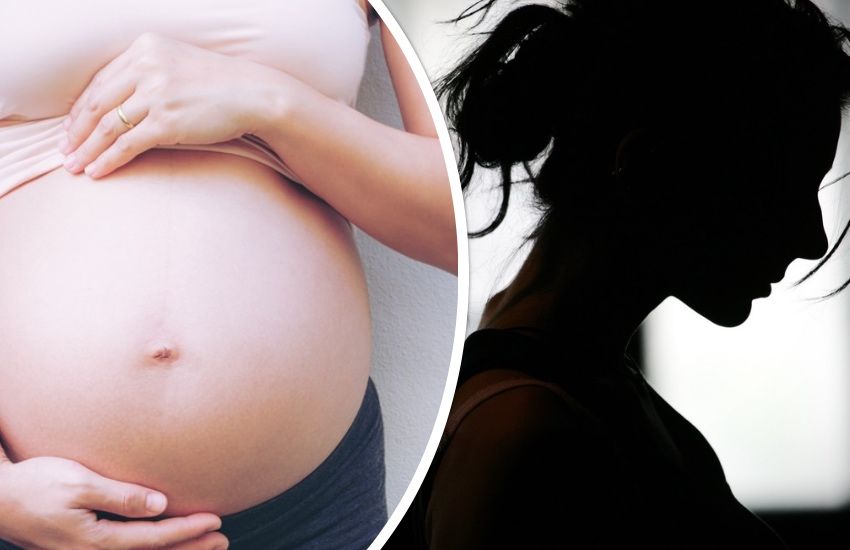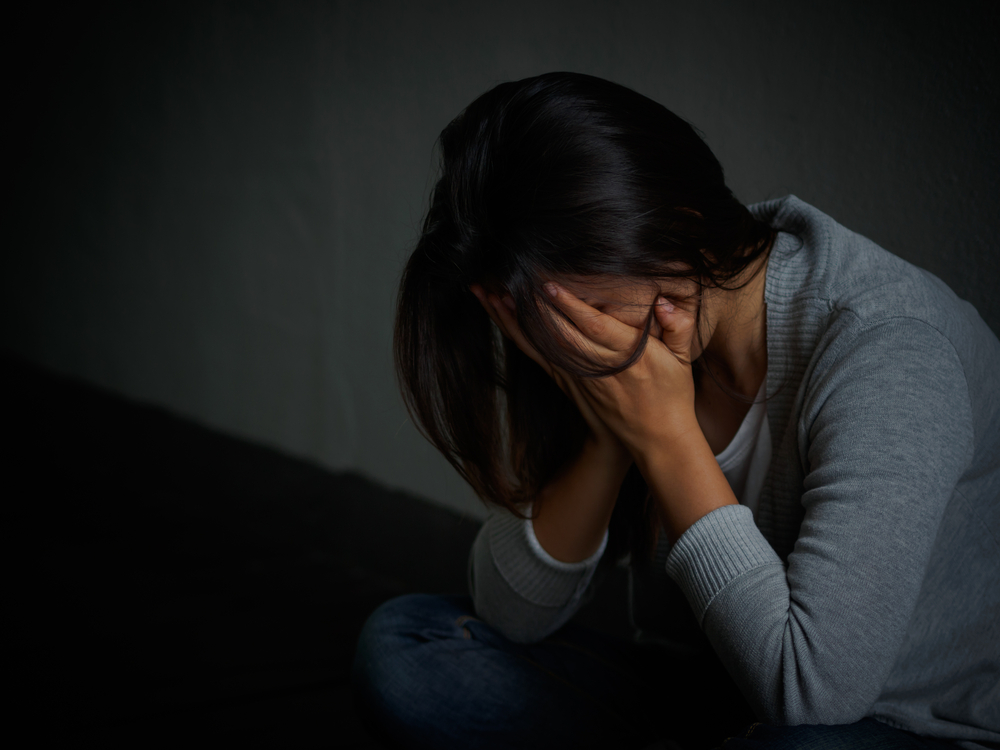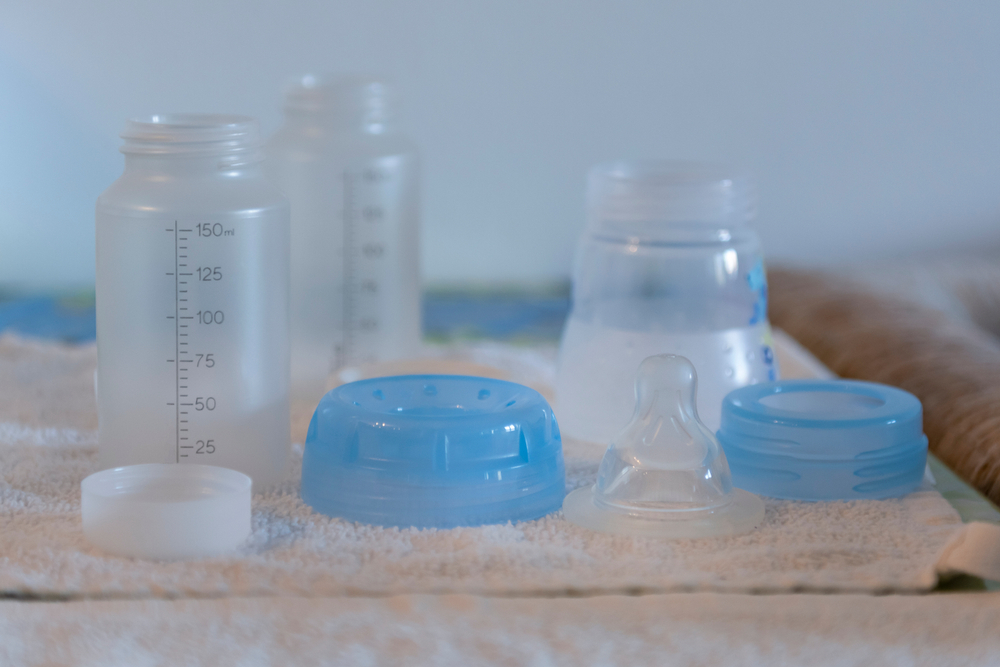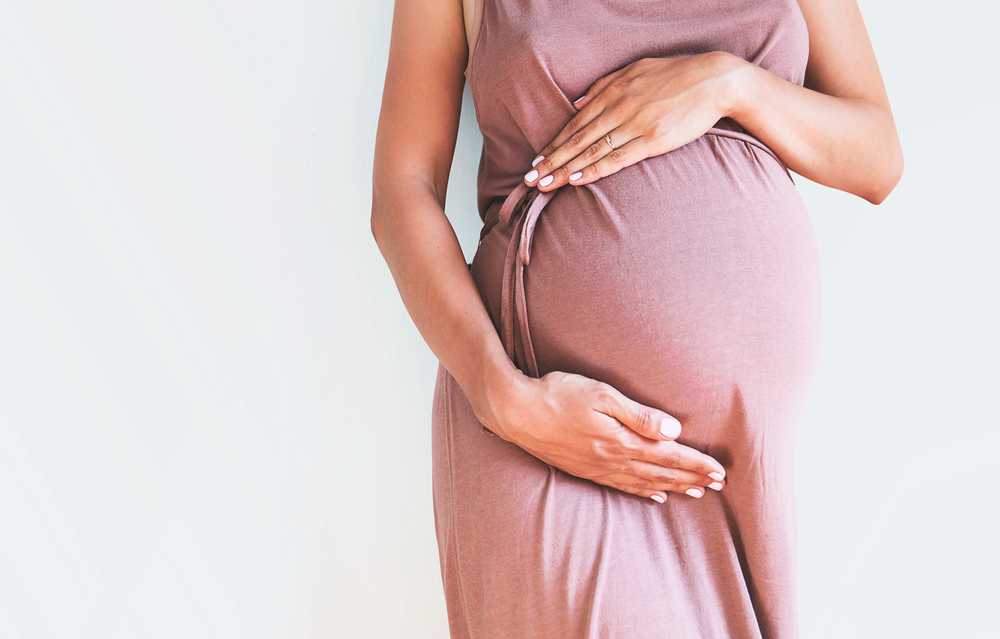


Today marks the start of Maternal Mental Health Awareness Week, which sees emphasis placed on mental illness while pregnant or after having a baby.
Helen Sensi decided to share her experiences of her mental health struggles in the hope that it may encourage other parents to seek support.
“With my first pregnancy I had an early-stage miscarriage, which is not uncommon for a first pregnancy, but it had a huge impact on my anxiety levels for my subsequent pregnancy,” she said.

Pictured: Mrs Sensi said that too much focus is put on the "good" in pregnancy which adds to the guilt of women who are struggling.
Mrs Sensi continued: “After my miscarriage, we tried for three years before I was pregnant again, so it was something that we desperately wanted, which I think contributed to the anxiety around the pregnancy.
“I didn’t feel confident with my pregnancy, and I had an anterior placenta which meant that I couldn’t feel the baby’s movement in the way that is usually used as a marker for a healthy pregnancy, which added to the worry further.”
Mrs Sensi required an emergency cesarian section which was traumatic for her.
She also witnessed the sudden loss of her father who suffered a cardiac arrest and subsequently became a carer for her mother.
“I didn’t have any time to just focus on being a new mum; I was trying to process the grief of losing my dad and the additional pressures of caring for my mum all while struggling with my postnatal mental health,” she said.
“I’m not sure if I can pinpoint whether it was the grief, a hormonal imbalance or just the huge life change, but I was incredibly tearful and didn’t want to be left alone. I saw my friends all having these wonderful experiences with their babies and I felt a huge amount of guilt that I wasn’t feeling the same.”

Pictured: A miscarriage is most likely to occur within the first 3 three months of pregnancy.
Mrs Sensi said that there is a lot of pressure on mothers.
“The worst thing by far was the guilt I felt; women are told that you should be happy and have this instant, overwhelming love for your child but I had so much anxiety and worry that I wasn’t enjoying every moment and then I felt even more guilty,” she said.
“I remember the huge amount of guilt I also felt for not being very successful in breastfeeding my daughter. I cried about that for two years.”
Mrs Sensi said that her mental health “changed forever” from her experiences.
“I changed a lot because of the mental health issues during and post-pregnancy. I became quite difficult to live with because I was almost OCD about needing everything to be in the right place. I think a lot of other mothers feel the same because you think that, unless everything is organised, you’re going to sink,” she said.
“If even just one bottle of six wasn’t sterilised I would panic until the sixth one was sterilised because I felt that everything all needed to be perfect."

Pictured: Mrs Sensi did not want to attend her ultrasound appointments and had anxiety through her pregnancies.
“I remember calling my husband to come home from work when I was four months post-natal because I hadn’t slept properly in nine weeks, and I just didn’t want to be alone," said Mrs Sensi.
Mrs Sensi became pregnant again when Sophia was nine months old.
“We were extremely surprised that I was pregnant again so quickly because it had taken so long to get pregnant with Sophia,” she said.
“Unfortunately, my son, William, was stillborn at 20 weeks. He had a condition which meant that his kidneys hadn’t develop properly.
“Unlike with Sophia where I needed a cesarian section, William was a natural birth; I had to deliver him. We had a funeral and burial for him; it was a completely different experience to the miscarriage. I am a nurse and am familiar with miscarriages but that couldn’t have prepared me for what happened with William.”
The experience of her stillborn son had, understandably, a further detrimental impact on Mrs Sensi’s mental health.

Pictured: Mrs Sensi received a 12-week course of EMDR therapy for post-traumatic stress disorder.
“It was very difficult because Sophia was still very young and we were so grateful to have her but it made her even more precious and added to the anxiety of wanting to do everything right for her,” said Mrs Sensi.
“It was bittersweet because we were lucky to have Sophia but at the same time there was a huge gap where the second baby should have been.”
Mrs Sensi then fell pregnant with her son, Luca.
“Although Luca was perfectly healthy, I didn’t enjoy my pregnancy at all, and I felt as though I couldn’t get my head straight,” she said.
“I didn’t want to go to any of my scans, I was having horrible nightmares and panic attacks. The anxiety and stress were immense. I kept thinking that, if he wasn’t going to survive, I just wanted to know as soon as possible and have it over with.”
Mrs Sensi went to Loveridge Ward at the Princess Elizabeth Hospital and admitted that she was struggling.
“I downplayed how I was feeling but the midwives were incredibly experienced and they realised that there was more of a problem than I had even realised myself,” she said.

Pictured: Mrs Sensi said she became "almost obsessive" about everything being in place and bottles being sterilised.
Mrs Sensi continued: “The midwives were amazing, and they assessed my situation as being high risk. I was referred to the Oberlands and diagnosed with post-traumatic stress disorder from witnessing my dad’s cardiac arrest.”
Mrs Sensi was given a 12-week course of eye movement desensitisation and reprocessing therapy (EMDR).
“Initially I said that I didn’t need the therapy, but I had to face the facts that I had witnessed something distressing with my dad and, in addition, the experience of giving birth to a stillborn baby, are both things that I can never unsee,” she said.
“The therapy made things worse to start with because I had to relive those experiences, but then it really helped and made things seem better.”
Mrs Sensi is currently pregnant with her baby due next month.

Pictured: Mrs Sensi is expecting a baby in mid-May.
“This pregnancy will be my last and it has been a world away from my previous experiences. It’s the first pregnancy I’ve had that hasn’t come after a loss and I have been able to enjoy it,” she said.
“I was also diabetic with my previous pregnancies but am not this time and that’s made me much more relaxed.”
Mrs Sensi said she would encourage other people to seek support.
“If I could speak to a room of women, and men, the most important thing I could say is that it’s ok for your experiences not to be a beautiful fairytale,” she said.

Pictured: Mrs Sensi said she would be interested in meeting with other women who have suffered with maternal mental health problems.
Mrs Sensi continued: “I think too often the focus is on the good and how everything is supposed to be amazing, and you’re meant to enjoy every moment and be happy, but that’s just not the reality.
“Pregnancy and parenting are incredibly overwhelming and it’s really hard. No matter what experiences you have, it changes your life completely and it’s important to know that you’re not alone in feeling guilty, being stressed and anxious or whatever else you are feeling.
“We need to focus more on the realities of pregnancy and the pressure it puts on mental health.”
Comments
Comments on this story express the views of the commentator only, not Bailiwick Publishing. We are unable to guarantee the accuracy of any of those comments.